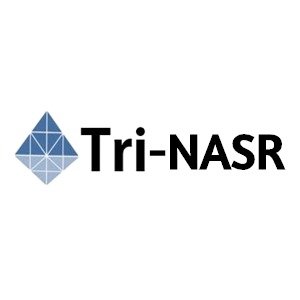Best Renewable & Alternative Energy Lawyers in Kano
Share your needs with us, get contacted by law firms.
Free. Takes 2 min.
List of the best lawyers in Kano, Nigeria
About Renewable & Alternative Energy Law in Kano, Nigeria
Renewable and alternative energy law in Kano, Nigeria concerns the policies, regulations, and legal frameworks that govern the development, distribution, and use of renewable energy sources such as solar, wind, bioenergy, and small hydropower. As Nigeria, and particularly Kano State, faces challenges with energy access and environmental sustainability, renewable energy solutions are gaining popularity. Legal frameworks are designed to encourage investment while protecting the environment and ensuring fair business practices. Kano and the wider Nigerian government are working together to create a sustainable energy sector that balances economic growth, job creation, energy security, and environmental protection.
Why You May Need a Lawyer
Legal advice in the field of renewable and alternative energy can be essential in several scenarios. You might need a lawyer if you are:
- Starting a renewable energy business or project and need help with licensing or permits
- Investing in solar panels or other renewable technologies for your property or business and need to review contracts
- Dealing with land acquisition or usage issues for energy projects
- Involved in a dispute concerning energy supply, equipment, or service quality
- Seeking incentives, subsidies, or government support for clean energy initiatives
- Trying to navigate tax or regulatory requirements for renewable energy in Kano
- Interested in community-based or cooperative energy projects and require a modern legal structure
- Facing environmental compliance queries for existing or proposed energy ventures
A lawyer helps guide you through regulatory complexity, contractual obligations, permits, and dispute resolution, making your project or investment safer and more efficient.
Local Laws Overview
Kano State operates within the broader legal framework of Nigeria which regulates renewable and alternative energy. Key aspects include:
- The Electric Power Sector Reform Act, which creates the foundation for independent power producers and renewable energy investment
- Nigerian Electricity Regulatory Commission (NERC) guidelines, which apply to licensing, tariffs, and technical standards
- Renewable Energy Master Plan (REMP) and National Renewable Energy and Energy Efficiency Policy (NREEEP), both promoting renewable adoption
- State-level policies that support small-scale renewable installations and off-grid projects, particularly in rural areas
- Zoning and land use regulations in Kano that affect the location and approval of energy projects
- Environmental Impact Assessment (EIA) requirements for energy projects, as mandated by the Ministry of Environment
- Tax incentives and import duty exemptions for renewable energy components as provided by federal law
Compliance with national and Kano-specific regulations is vital for success in the renewable energy sector.
Frequently Asked Questions
What qualifies as renewable or alternative energy in Kano?
Renewable energy includes sources that are naturally replenished such as solar, wind, biomass, and small hydroelectric power. Alternative energy refers to technologies that reduce reliance on conventional fossil fuels.
Do I need a license to generate and sell renewable energy in Kano?
Yes, typically you need a license from the Nigerian Electricity Regulatory Commission, especially for larger or commercial projects. Smaller systems, especially off-grid, may be exempt depending on their capacity.
Are there government incentives for renewable energy projects in Kano?
Yes, Nigeria offers tax holidays, customs tariff waivers on equipment, and grants for certain projects. Some incentives are also available at the state level.
What permits are required for setting up a solar power system?
You may need building permits, environmental impact assessments, and possibly energy sector licensing depending on the size and nature of the system.
How can I resolve land disputes related to my renewable energy project?
Land issues are common and can be complex. Legal assistance is crucial for negotiating agreements, clarifying land rights, and handling local community relations.
Does Kano State have specific policies for rural electrification?
Yes, the state supports off-grid and mini-grid projects in rural areas as part of the wider government push for energy access, often using donor and public-private funding.
What environmental regulations apply to renewable energy projects?
Projects must comply with federal and state environmental standards, including environmental impact assessments overseen by the Ministry of Environment.
Can individuals and businesses sell excess solar power to the national grid?
This is possible but requires approval from the NERC and adherence to grid-connection codes. The process is evolving and best navigated with legal guidance.
Are there restrictions on importing renewable energy equipment?
Nigeria generally allows importation of renewable energy components, with some incentives, but customs and quality standards must be followed.
How can I ensure my renewable energy contract protects my interests?
Seek legal review for all contracts related to installations, operations, maintenance, and energy sales. A lawyer will help identify risks and ensure fair terms.
Additional Resources
Several organizations and agencies provide support and information on renewable and alternative energy in Kano and Nigeria:
- The Nigerian Electricity Regulatory Commission (NERC)
- Rural Electrification Agency (REA)
- Federal Ministry of Power
- Kano State Ministry of Environment
- Energy Commission of Nigeria
- Nigerian Renewable Energy Roundtable
- Nigeria Energy Support Programme (NESP)
- Standards Organization of Nigeria (SON) - for product quality control
You can also consult local legal associations and trade groups for referrals to qualified renewable energy lawyers.
Next Steps
If you need legal assistance in the field of renewable and alternative energy in Kano:
- Gather all relevant documents related to your project, investment, or issue
- Write down your specific questions and goals
- Identify lawyers or law firms with experience in energy law and local regulations
- Schedule a consultation to discuss your case and legal options
- Follow up with your lawyer for updates and further guidance as your project advances
Taking these steps early will help you avoid common pitfalls and position your renewable energy initiative for long-term success in Kano, Nigeria.
Lawzana helps you find the best lawyers and law firms in Kano through a curated and pre-screened list of qualified legal professionals. Our platform offers rankings and detailed profiles of attorneys and law firms, allowing you to compare based on practice areas, including Renewable & Alternative Energy, experience, and client feedback.
Each profile includes a description of the firm's areas of practice, client reviews, team members and partners, year of establishment, spoken languages, office locations, contact information, social media presence, and any published articles or resources. Most firms on our platform speak English and are experienced in both local and international legal matters.
Get a quote from top-rated law firms in Kano, Nigeria — quickly, securely, and without unnecessary hassle.
Disclaimer:
The information provided on this page is for general informational purposes only and does not constitute legal advice. While we strive to ensure the accuracy and relevance of the content, legal information may change over time, and interpretations of the law can vary. You should always consult with a qualified legal professional for advice specific to your situation.
We disclaim all liability for actions taken or not taken based on the content of this page. If you believe any information is incorrect or outdated, please contact us, and we will review and update it where appropriate.













